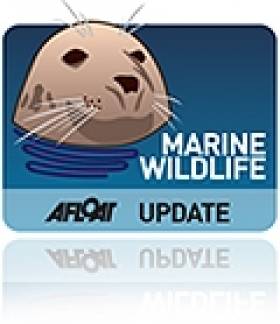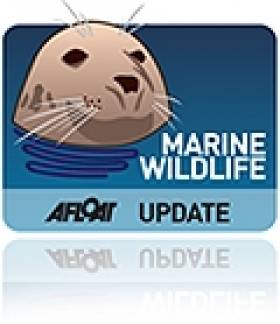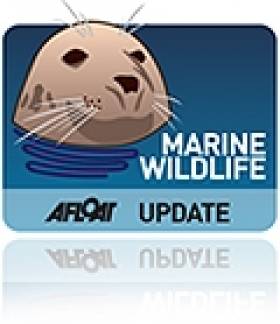Displaying items by tag: Conor Ryan
North Atlantic Killer Whales Feeding on Sunfish Says IWDG
#MARINE WILDLIFE - The Irish Whale and Dolphin Group (IWDG) has recorded another first for the North Atlantic, with evidence showing that killer whales are feeding on ocean sunfish.
Mark Holmes of the Natural History Museum confirmed the presence of parasites unique to the sunfish found within the carcass of a female orca stranded in Doohooma in Co Mayo.
"These parasites did not originate from the whale's stomach, but came from the prey which it had eaten," said the IWDG's Conor Ryan.
"This was confirmed when the partially digested bones in the stomachs were eventually identified as those of a sunfish beak."
The discovery may explain a recent study of UK waters which found sunfish taking unusually deep dives, possibly to avoid cetaceans and other large predators.
Fin Whales Come Closer to Kerry Coast
Though they failed to track down the elusive humpback whales, IWDG members were recently treated to their first sighting of fin whales in Co Kerry's inshore waters.
With permission from the Haughey family to land on Inis Mhic Aoibhleáin - the most westerly point in Europe - as a vantage point, 20 members of the Irish Whale and Dolphin Group set out south towards the Scelligs following tell-tale blows.
Amid hundreds of dolphins and as many as 11 minke whales seen throughout the day, the first fin whale was found 10 miles south of the Blaskets.
Two more were spotted 4 miles northwest of Sceilig Mhichíl, both of which were biopsied.
"What we observed was spectacular activity in an area which appeared to be devoid of life just the week before," said the IWDG's Conor Ryan.
The IWDG has more on the story, including photos, HERE.
Fin Whales Captured on Video
The Irish Whale and Dolphin Group (IWDG) has posted photos and video of last weekend's fin whale research expedition off the coast of Co Waterford. SEE VIDEO BELOW
The group encountered a number of fin whales feeding between Hook Head and Helvick Head, and got close enough to two whales swimming near the shore to take clear photos and a biopsy sample.
Another biopsy was taken from a group of three whales feeding just below the surface close to Dungarvan.
"These whales were swimming in water just 15m deep. For an animal whose body length is 20m, this was a surprising discovery," said the IWDG's Conor Ryan.
The Irish Independent reports that the majority of fin whale sightings normally come from Cork and along the western seaboard, but most recent spottings have been from further east in Waterford and on the Wexford coast.

































































